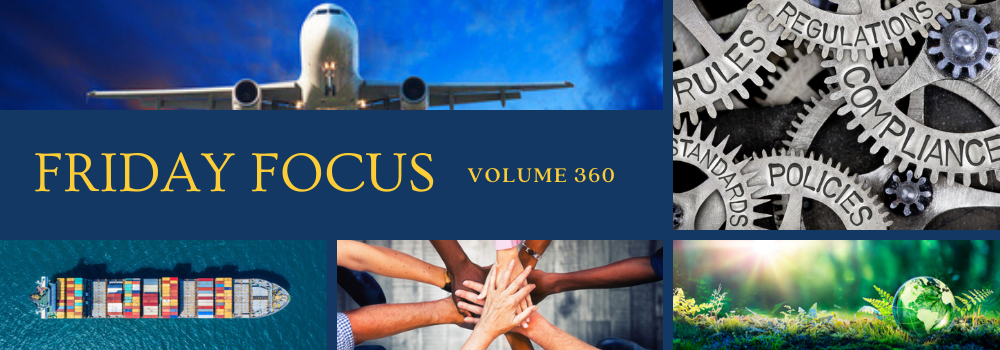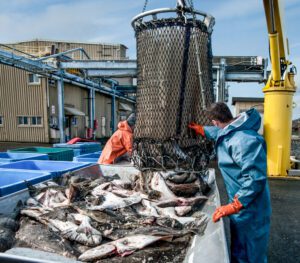Following is an excerpt from the report “WTO E-Commerce Tariff Moratorium at 25” by Malena Dailey & Ed Gresser at the Progressive Policy Institute.
The WTO’s 164 members have some significant calls to make this month, on an array of agenda topics ranging from fishery subsidies to agricultural stockpiling, intellectual property, and — not least — whether to extend their quartercentury-old pledge for “duty-free cyberspace.” This policy, more technically if clunkily termed a “moratorium on application of tariffs to crossborder electronic transmissions,” represents a 25-year-old consensus — always temporary but regularly renewed at each WTO Ministerial meeting — which helped to create and continues to underpin the modern global digital economy. If they renew it, no WTO member would need to change policy. Rather, they would simply continue to refrain from grabbing and tampering, while focusing their energy on issues in need of activist policy, from privacy protection to cybersecurity and action against disinformation. This commitment, simply by avoiding unintentional harm, would allow the digital economy to continue the natural growth that has helped hundreds of thousands of small businesses, and an uncountable but very large number of individuals, enter the global economy and find new ways to realize dreams and earn incomes.
The “moratorium,” however, is under some stress and criticism, mainly from left-populist NGOs and a few large developing-country governments. Their argument, fundamentally, is that the moratorium prevents taxation of data flows and therefore deprives developing-country governments of some tax revenue. But abandoning the moratorium would be a sad mistake, for global growth, for innovation, and for the governments who, in focusing on potential tax revenues (which, see below, are quite modest), are losing sight of their much larger growth and development opportunities. And it would be a sad mistake for the Biden administration’s hope for a more ‘inclusive’ trading system that offers more opportunity for small businesses and marginalized communities. Duty-free cyberspace remains critical to all these things, and the WTO members should enthusiastically endorse it once again.
|
01/31/2024 | Malena Dailey & Ed Gresser | Progressive Policy Institute
|
Fisheries Subsidies: Will World Trade Organization Members Finish the Job at MC13?Following are excerpts from a policy analysis by Tristan Irschlinger published by the International Institute for Sustainable Development. Members of the World Trade Organization (WTO) clinched a historic deal on fisheries subsidies in June 2022, drawing applause from around the world. But while there is no denying the importance of this agreement, it is too early to call it a definitive success just yet. The agreement’s ultimate contribution to safeguarding the health of marine resources still depends on its entry into force, faithful implementation, and—perhaps most importantly—WTO members’ ability to strengthen it with additional rules to tackle harmful fisheries subsidies more broadly. What can we expect ahead of the WTO’s Thirteenth Ministerial Conference (MC13)?… …Ongoing talks can be seen as an opportunity to better address the underlying role of subsidies in driving overcapacity in global fishing fleets and incentivizing unsustainable levels of fishing. It is precisely these additional rules that members are now negotiating. While the agreement reached at MC12 aims to prevent the most damaging impacts of fisheries subsidies, the ongoing talks can be seen as an opportunity to better address the underlying role of subsidies in driving overcapacity in global fishing fleets and incentivizing unsustainable levels of fishing. As such, they are an opportunity to tackle more directly, and more broadly, one of the root causes of overfishing. The further disciplines that are envisaged rely on three key elements: (1) a main prohibition of subsidies that contribute to overcapacity and overfishing, including a list of subsidy types that are presumed to do so; (2) an exception allowing subsidies to continue when members can show that they apply fisheries management measures to keep stocks healthy; and (3) special and differential treatment (SDT) for developing country members, in the form of temporary and permanent exemptions from the rule and the management exception for subsidies by these members. The proposed disciplines also include prohibiting subsidies “contingent upon or tied to” fishing beyond the subsidizing member’s waters, as well as additional transparency requirements. |
|
The Global Arrangement for Sustainable Steel and Aluminum & New Opportunities for Climate Cooperation |
Next week, on February 12-13, WITA will host its annual International Trade Conference. One of the authors of this report, Catrina Rorke, will take part in the session titled “Balancing at the Border – Trade Policies to Close the Pollution Loophole.” Information can be found here and below.
The industrial sector produces more than 25% of global CO2 emissions. No climate solution can be effective without identifying and mobilizing decarbonization pathways for hard-to-abate manufacturing processes, like those required to produce steel, aluminum, cement, fertilizers, and chemicals. Firms are innovating low-carbon solutions, but a singular challenge remains: stiff competition from low-cost suppliers makes it difficult to finance the development and deployment of innovative, lower-carbon processes and technologies. This is especially true in competition between firms operating in market economies and state-owned enterprises.
Recognizing that firms face significant hurdles to achieving decarbonization, the United States and the European Union have launched negotiations for the Global Arrangement for Sustainable Steel and Aluminum (Global Arrangement or GASSA), the first trade agreement of its kind. It will enable the parties to work together toward reducing sources of global non-market excess capacity (NMEC) in steel and aluminum manufacturing and lowering the carbon intensity of traded products.
The approach is revolutionary. It brings together two of the largest, cleanest manufacturers and the most powerful consumer markets in the world to reform trade in energy-intensive goods. Prior Council research has demonstrated that successful resolution of the Global Arrangement can reduce global industrial emissions, reward carbon-efficient manufacturers and workers, and generate clear benefits for participating economies. Moreover, the Global Arrangement can provide a powerful template for future agreements between additional countries, covering additional commodities and addressing global manufacturing practices across a number of important sectors.
|
|
The term artificial intelligence (AI) was first introduced in the 1950s, but it wasn’t until the launch of ChatGPT, which amassed over 100 million users within just two months in late 2022, that the public began to take notice. Similarly, the importance of “supply chain management,” a term coined in the 1980s, was largely overlooked until the COVID-19 pandemic led to prolonged shortages of various products, from personal protective equipment to semiconductors. Today, an increasing number of companies are turning to AI to manage their global supply chains. Two questions arise: can AI enhance supply chain resilience? What impact will AI have on employment in supply chain management? The missing link between AI and supply chain in Biden’s executive orders The Biden administration has paid considerable attention to both global supply chains and AI. In 2023, President Biden signed two executive orders: one regarding governance and responsibility in AI development and another to improve supply chain resilience. In June 2023, the White House released a progress report to build resilient supply chains for four critical products: semiconductors, large-capacity batteries, critical minerals and materials, and active pharmaceutical ingredients. The development of resilient supply chains is a key component of Bidenomics. For this endeavor, Biden attained $52.7 billion from Congress through the CHIPS and Science Act. Later, in October 2023, the White House released a report summarizing President Biden’s executive order on Safe, Secure, and Trustworthy AI. The order requires developers of powerful AI systems to meet certain safety standards before publicly releasing their solutions. Finally, President Biden announced in November 2023 the establishment of the new White House Council on Supply Chain Resilience to develop new capabilities to monitor existing and emerging risks and to detect and respond to supply chain disruptions in critical sectors with supply chain partners. Although these policies are promising, American policymakers have yet to address the inherent connection between AI development and supply chain resilience. This trend is not limited to the United States. First proposed in 2021, the EU Parliament reached a provisional agreement with the Council on the EU AI Act in December 2023. The policy provides guidance for high-risk AI systems and breaks down responsibilities throughout the AI supply chain with requirements for importers, distributors, and other supply chain stakeholders. |
|
|





